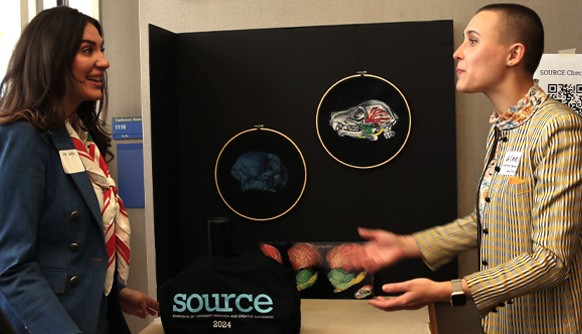News
Q&A: Staying Well During Trying Times
April 13, 2020
We are all experiencing extraordinary stresses during the COVID-19 crisis: loneliness, fear, and anxiety are just some of the emotions we might be feeling. The Box reached out to Director Michael Schneider; Associate Director Tiffany Ciprian; Associate Director Alexandra Lo Re; and Counselor Joan O’Connor in the Office of Counseling and Wellness to learn how we can best manage the situation.
What can people do at home to combat anxiety?
Even though this is a time of significant stress and uncertainty, there are measures we can take to manage our anxiety:
- Be mindful of your news consumption about COVID-19. Stay informed while setting boundaries about your news intake.
- Set a routine and try your best to stick to it. Apps such as Trello and Wunderlist can help with organizing tasks and setting up a schedule.
- Engage in mindfulness practices. Studies have shown that those who practice mindfulness meditation experience reduced stress and anxiety, increased cognitive flexibility, and better relationships.
- Exercise. It boosts mood and improves physical health.
- Grounding exercises, a common technique used in therapy, help us regain a sense of control. An easy grounding exercise is the 5-4-3-2-1 technique. Identify 5 things you can see, 4 things you can touch, 3 things you can hear, 2 things you can smell, and 1 thing you can taste.
- Pursue a hobby. Continue to do the things that make you happy. You can also try out new interests.
What would you suggest to someone who is struggling with loneliness?
Being isolated from our social network can have a significant impact on our mental health. It’s important to stay connected to loved ones virtually, through video chats, social media, and by phone. Join group experiences like the New York Tech Netflix Party, free hour virtual events, and exercise classes. (View a full listing of virtual events.)
What advice would you give to people sharing a small space with others?
While our first reaction to having to share limited space may be “There is nothing I can do about this,” it’s better to be creative and explore possibilities. Here are some tips:
- When you’re stressed, remove yourself temporarily from your shared space by taking a walk outside, taking a shower or bath, calling a friend on the phone, reading a book, etc.
- Set up an area, no matter how small, as your own. This can be your bedroom, a section of a shared room, or even a particular chair. Place some of your comfort items there to make it inviting, and make sure (courteously) that your housemates understand that it’s your personal space.
- Take the initiative to relate to housemates in a new way. For example, suggest playing a board game together, cooking together, or other home-based activities. You may be surprised at how partnering on a different activity can result in establishing a new and deeper bond.
What is the relationship between being productive and managing your mood?
A direct relationship exists between being productive, even in a small way, and maintaining a positive and balanced mood. When we feel productive, we feel in control, and those feelings improve our mood.
Establishing small goals each day contributes to a sense of well-being. Make your goals realistic and doable, and take frequent breaks. For example, schedule an hour for coursework, followed by taking a walk outside. Set an hour to work on cleaning a closet followed by an hour of watching a favorite TV show. Setting goals like this helps us work through the stress we are all experiencing.
How can we learn to show patience with others when we’re all so stressed?
The first thing to understand is that there is no right or wrong way to feel during this crisis. It is going to be different for everyone. While some people might feel sad or overwhelmed, others might be angry. Even this can be unpredictable. Some days will be okay and others will be difficult. Everyone is going through their unique process of grieving; understanding that can help.
The most important point to remember is that we are in this together and experiencing some degree of the same emotions. If we can learn to support each other, we can use this crisis to create even stronger connections within our relationships.
This interview has been edited and condensed.




